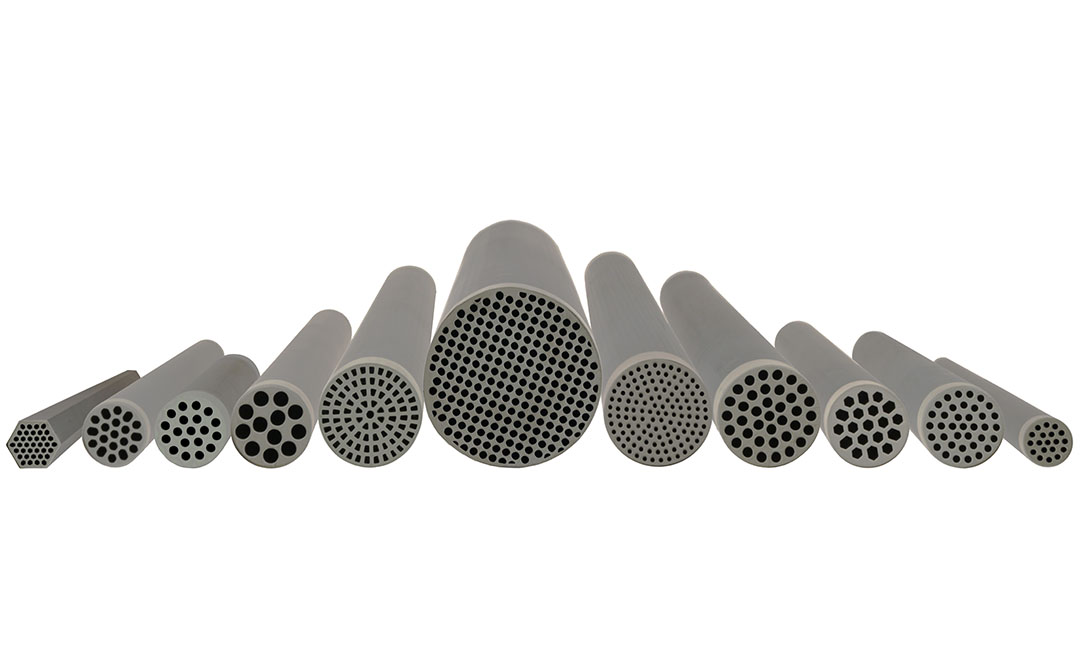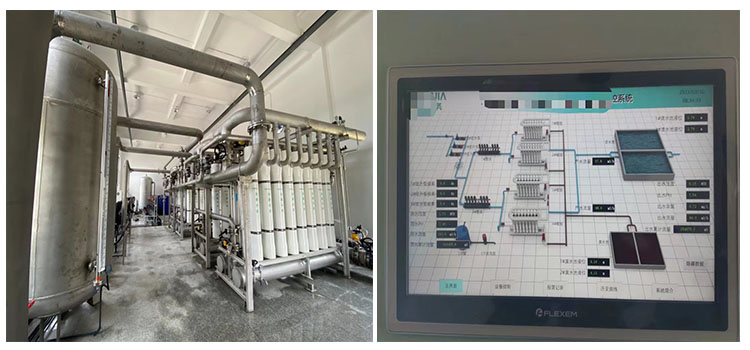Benefits of Using Ceramic Silicon Carbide Membranes in Water Filtration Systems
Ceramic Silicon Carbide membranes are a cutting-edge technology that is revolutionizing the field of water filtration. These membranes offer a range of benefits that make them superior to traditional filtration methods, making them an attractive option for industries and municipalities looking to improve their water treatment processes.
One of the key benefits of using Ceramic Silicon Carbide membranes is their exceptional durability. Unlike traditional membranes made from polymers or other materials, Ceramic Silicon Carbide membranes are highly resistant to corrosion, fouling, and degradation. This means that they have a much longer lifespan and require less frequent replacement, saving time and money in the long run.
In addition to their durability, Ceramic Silicon Carbide membranes also offer superior filtration performance. These membranes have a high porosity and a narrow pore size distribution, allowing them to effectively remove a wide range of contaminants from water, including bacteria, viruses, and organic compounds. This makes them ideal for use in a variety of applications, from drinking water treatment to industrial wastewater treatment.
Another benefit of using Ceramic Silicon Carbide membranes is their energy efficiency. These membranes require less energy to operate than traditional filtration methods, making them a more sustainable option for water treatment. This can help industries and municipalities reduce their carbon footprint and lower their operating costs, making Ceramic Silicon Carbide membranes a smart choice for environmentally conscious organizations.
Furthermore, Ceramic Silicon Carbide membranes are easy to clean and maintain, further reducing operating costs and downtime. These membranes can be cleaned using a variety of methods, including backwashing and chemical cleaning, ensuring that they remain in optimal condition for years to come. This ease of maintenance makes Ceramic Silicon Carbide membranes a convenient option for water treatment facilities looking to streamline their operations.

In conclusion, the benefits of using Ceramic Silicon Carbide membranes in water filtration systems are clear. These membranes offer exceptional durability, superior filtration performance, energy efficiency, and ease of maintenance, making them a cost-effective and sustainable option for industries and municipalities. By investing in Ceramic Silicon Carbide membranes, organizations can improve the quality of their water treatment processes while also reducing their environmental impact. With their revolutionary technology, Ceramic Silicon Carbide membranes are shaping the future of water filtration and setting a new standard for efficiency and effectiveness in the industry.
Comparison of Ceramic Silicon Carbide Membranes with Traditional Filtration Methods
Ceramic Silicon Carbide membranes have been making waves in the field of filtration technology, offering a more efficient and sustainable alternative to traditional filtration methods. In this article, we will compare Ceramic Silicon Carbide membranes with traditional filtration methods to highlight the advantages of this innovative technology.
One of the key differences between Ceramic Silicon Carbide membranes and traditional filtration methods is their durability. Traditional filters made of materials like cellulose or polyester are prone to clogging and require frequent replacement. In contrast, Ceramic Silicon Carbide membranes are highly resistant to fouling and can last much longer without the need for maintenance. This not only reduces operating costs but also minimizes downtime for cleaning and replacement, making Ceramic Silicon Carbide membranes a more cost-effective option in the long run.
Another advantage of Ceramic Silicon Carbide membranes is their superior filtration efficiency. Traditional filters often have limited pore sizes, which can lead to poor filtration performance and reduced water quality. Ceramic Silicon Carbide membranes, on the other hand, have a highly uniform pore structure that allows for precise control over the size of particles that can pass through. This results in a more efficient filtration process and ensures that even the smallest contaminants are removed from the water.

In addition to their durability and efficiency, Ceramic Silicon Carbide membranes also offer environmental benefits compared to traditional filtration methods. Traditional filters are typically disposable and contribute to the growing problem of plastic waste. Ceramic Silicon Carbide membranes, on the other hand, are reusable and can be easily cleaned and maintained, reducing the amount of waste generated by filtration systems. This makes Ceramic Silicon Carbide membranes a more sustainable option for water treatment facilities looking to minimize their environmental impact.
Furthermore, Ceramic Silicon Carbide membranes are also more versatile than traditional filtration methods. They can be customized to meet specific filtration requirements, allowing for greater flexibility in water treatment processes. Whether it’s removing heavy metals, bacteria, or other contaminants, Ceramic Silicon Carbide membranes can be tailored to deliver the desired level of filtration performance. This adaptability makes Ceramic Silicon Carbide membranes a valuable tool for a wide range of applications, from industrial wastewater treatment to drinking water purification.
Overall, Ceramic Silicon Carbide membranes represent a significant advancement in filtration technology, offering a more durable, efficient, and sustainable alternative to traditional filtration methods. With their superior performance, environmental benefits, and versatility, Ceramic Silicon Carbide membranes are revolutionizing the way we treat water and ensuring a cleaner, safer future for generations to come.
Applications of Ceramic Silicon Carbide Membranes in Industrial Filtration Processes
Ceramic silicon carbide membranes have emerged as a game-changer in the field of industrial filtration processes. These membranes offer superior performance and durability compared to traditional filtration methods, making them an attractive choice for a wide range of applications. In this article, we will explore the various ways in which ceramic silicon carbide membranes are revolutionizing filtration technology in industrial settings.
One of the key advantages of ceramic silicon carbide membranes is their exceptional chemical and thermal stability. This makes them ideal for use in harsh industrial environments where traditional filtration materials may degrade or fail. The high temperature resistance of silicon carbide membranes allows them to withstand extreme heat, making them suitable for applications such as wastewater treatment in power plants and chemical processing facilities.
In addition to their thermal stability, ceramic silicon carbide membranes also offer excellent mechanical strength and abrasion resistance. This allows them to maintain their integrity and performance over long periods of use, reducing the need for frequent maintenance and replacement. Industries such as mining and metal processing, which produce abrasive slurries and high solids content wastewater, can benefit greatly from the durability of silicon carbide membranes.
Another key advantage of ceramic silicon carbide membranes is their high filtration efficiency. These membranes have a narrow pore size distribution, which allows them to effectively remove particles and contaminants from liquids with high precision. This makes them ideal for applications such as desalination, where the removal of salts and other impurities is crucial for producing clean drinking water.
The exceptional filtration efficiency of ceramic silicon carbide membranes also makes them well-suited for the pharmaceutical and biotechnology industries. These membranes can effectively remove bacteria, viruses, and other microorganisms from liquids, ensuring the purity and safety of pharmaceutical products and biotechnological processes. The ability of silicon carbide membranes to provide sterile filtration makes them an essential component in the production of vaccines, antibiotics, and other critical medical products.
Furthermore, ceramic silicon carbide membranes are highly resistant to fouling, a common issue in industrial filtration processes. Fouling occurs when particles and contaminants accumulate on the surface of the membrane, reducing its effectiveness and requiring frequent cleaning or replacement. The anti-fouling properties of silicon carbide membranes help to minimize downtime and maintenance costs, making them a cost-effective solution for industries such as food and beverage processing and wastewater treatment.
In conclusion, ceramic silicon carbide membranes are revolutionizing industrial filtration technology by offering superior performance, durability, and efficiency compared to traditional filtration methods. Their chemical and thermal stability, mechanical strength, and high filtration efficiency make them an ideal choice for a wide range of applications in industries such as power generation, mining, pharmaceuticals, and food processing. As the demand for clean water, pure pharmaceutical products, and efficient industrial processes continues to grow, ceramic silicon carbide membranes are poised to play a crucial role in meeting these challenges and driving innovation in the field of filtration technology.

